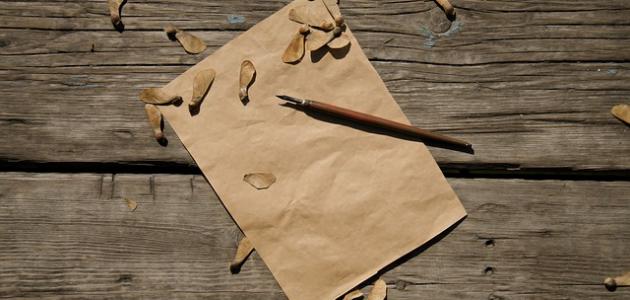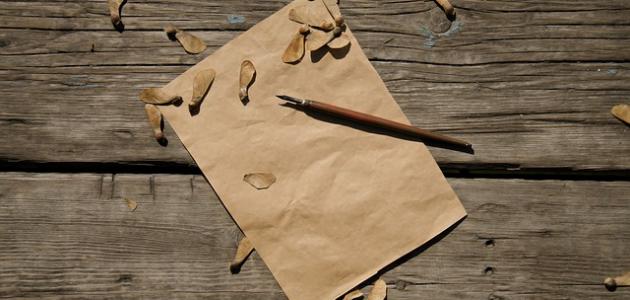The most beautiful thing Mahmoud Darwish said
Mahmoud Darwish's prose words are as beautiful as his poetry, and the following are some of his beautiful prose writings that deserve a long pause, just like his poems:
Diaries of Ordinary Sorrow / Mahmoud Darwish
There is a distance between poetry and prose that is like jumping into the unknown. It is difficult to move from one bank to another without the owner of the “adventure” being subjected to the horror of drowning in the deep life.
Two different worlds, close, apart. Yet one clings to the other for fear of dying alone or living alone. Both are hell and paradise at the same time.
Or so we imagine, while we are reassured by one of them and alienated from the other. Two worlds reside at the edge of the blade. Two separate entities, and what is between them is a geography covered with dark regions, with labyrinths hungry to grab the fallen from this world or that.
Rotten twins who do not respect the bonds of brotherhood, not even blood friendship. It was written on them that each revolves around the same orbit. Two different destinies, whenever one thought of getting close to the other, hatred flared up between them, and we declared the utmost alert.
The common denominator between them is their pledge to permanent divorce in order for both of them to preserve their pure and absolute identity. Prose extrapolates the world in its vulgar monotony.
Poetry seeks to shuffle and re-shuffle papers to bring about a transformation in the form and content of the world. The first envisages a truce, yearns for reconciliation with the world, and does not tolerate, in its nature, decisive coups.
Read also:The sweetest sad poetryThe second is reckless who wants to burn the stages to precede history while writing its eternal laws and principles. Between this and that dispute over everything. Whichever is more appropriate to confiscate and own. Which is more talented in making man again.
Prose legislator on his revelations
These perceptions may appear from the fabric of the prose texts of the poet Mahmoud Darwish in his recently published book by “Riyad Al-Rayes House for Books and Publishing”, Beirut 2007, entitled “Diary of Ordinary Sorrow”. It is the fourth revised and new edition of what was previously published in 1973.
However, the writer draws us into his own spaces filled with difficult and surprising questions, as if we are approaching them for the first time. Prose texts par excellence, but they look forward, in their nature, to what makes them escape from the heavy laws of prose.
The way to do so is probably an openness, without preconditions, to the internal revelations of the prose vision, and an external openness to the connotations of this vision and its formation in the mind and spirit of the reader. Texts that do not deviate, in their composition, from the structure and identity of prose. However, it tends, in one way or another, to rebel against its traditional forms and turn, whenever possible, against that balanced context between the facts in their rigid facts and expressing them in words.
_ What is home?
- The map is not an answer, and the birth certificate has become different. No one has faced this question as you face it from now until you die, or repent or betray. Your conviction is not enough because it does not change or explode, and because the wander is big.. The desert is not always bigger than the dungeon.
And what is the homeland? It is not a question that you answer and go on, your life and your cause together. Before and after that, it is your identity, and one of the simplest things is to say: My homeland... where you were born.. and you returned to the place of your birth and did not find anything, so what does that mean? And one of the simplest things is to say also My home is where I die..
Read also:Short sad poetryBut you may die anywhere, and you may die on the border of two places, so what does that mean? And after a while… the question will become more difficult.
Why did you emigrate....Why did you emigrate? Twenty years ago, you have been asking: Why did they emigrate? Emigration is not the abolition of the homeland.. but it is turning the matter into a question. Do not date now. When you do that, you emerge from the past. What is required is that you hold the past accountable. Do not date anything but your wounds. Except your absence, you are here... here..
Where you were born and where longing takes you to death, and what is the homeland? But you are part of the whole and the whole is absent and exposed to annihilation, and why did you become afraid to say: The homeland is the place where my ancestors lived? Because you reject the pretext of your enemies, so they say.
_ What did you learn in school?
- “Peace be upon the bird returning from the land of the sun to my window in exile. Tell me, bird, about the condition of my family and ancestors.”
And the previous song?
- cancel it.
_What was the song they canceled saying?
- Peace be upon you from me
Land of my ancestors
You have a good place
And good singing
There is no big difference between the two songs, other than the difference other than the nostalgia that comes from afar and the nostalgia that comes from close by. Both songs declare love for the land itself, and both of them define the concept of the homeland by belonging to the ancestors. The first song overpowered the second, and the second poet sang distant nostalgia, and the Arab boys who remained in their countries were deprived of singing the poem of their poet, and their path to the future depended on the mastery of the Jewish poet who was residing in Russia, and the Arab teacher who dared to teach the song of patriotism was expelled from work On the charge of incitement against the State of Israel and on the charge of anti-Semitism, then we grew up a little, and taught us the difficult epics of that poet, and we only learned from Al-Mutanabbi “You are the opponent and you are the judge.”
Read also:Poems love sadness and separationThey are opponents and rulers.
They are the ones who define for us “what is home”:
“You go out with Moses on the run from Egypt, you hit the sea with a stick, the sea splits, the children of Israel pass through, then the sea devours their enemies, you stay in the Sinai desert for forty years, you reconcile with (...) and then you come back.”
They are opponents and rulers.
They are the ones who define for us “what is home”:
“Theodore Herzl sat and thought about the fate of his oppressed people. He composed the Zionist idea, which is the only way to the land of the only salvation… The Jews will not achieve themselves and will not be able to carry out the implementation of the historical message of the Jewish resurrection except by returning to the homeland of the forefathers.. to Palestine.”
And when you ask the teacher about the fate of the Palestinian Arab people and their homeland, he whispers in your ear to stop taking risks and insulting the sanctity of history. Jewish as England is English.”
And when you press him to ask about the fate of the Palestinian Arabs, Weizmann reassures you: “The Zionists will not enter the land of Israel like invaders, they will not expel anyone.” They will not expel anyone









